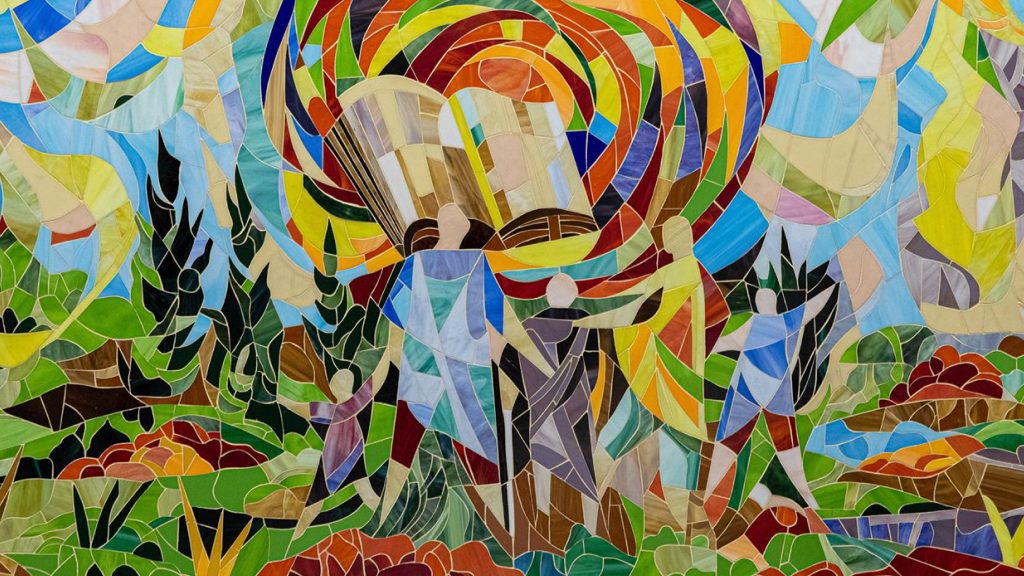Once upon a time, a community designed a new sanctuary. Each Shabbat, the congregation grew more excited. Finally, the sanctuary was ready! At its dedication, everyone came and marveled at the building’s beauty. Clearly a lot of intention went into the design.
It wasn’t long, however, before someone noticed the building had no light. “Where are the lamps?” someone asked. “How will our new sanctuary be lit?” The rabbi then pointed to brackets that had been mounted at regular intervals around the room.
The rabbi gave each family a lamp to bring whenever they came to the synagogue. “When you are not here,” the rabbi said, “part of this synagogue will not be lit. When you remain at home, some part of the sanctuary will be darker.”
The message from this story is clear to us: when each member brings their light, a community has great potential to shine brightly. Shalshelet hakabalah, the chain of tradition, shows us that this metaphor was present in this week’s Torah portion, as the first sanctuary was being build.
In Tetzaveh, God commands each Israelite to bring clear olive oil in order to light kindling lamps each night.
Piece by piece, the Israelites are learning the elements that are necessary to create a holy community. Last week, each Israelite was instructed to bring materials, as their hearts were moved, to build the Tabernacle. Now that it is built, the responsibility shifts to lighting it. On the surface, it might seem that the oil is the same. That anyone can bring oil. However, I am reminded of the hooks around the walls of the renovated sanctuary, and in fact, everyone must bring the oil.
The Torah provides almost a superfluous amount of details in building the sanctuary, perhaps as to offer tangible ways for the People of Israel to participate in creating this space for God. Through these actions, our ancestors brought their unique souls into the sanctuary, where they were able to build relationships with the Holy One. This took time, but by the time the People of Israel reached The Promised Land, there was enough oil for the light in front of the sanctuary to remain lit all the time.
We are blessed to be a part of Temple Beth El, a well-lit synagogue. Individuals and families bring their light by providing comfort by knitting healing blankets, leading shiva minyanim, and simply bringing their souls to temple.
But sometimes, we might feel like our light is not shining as brightly. The Ner Tamid, the eternal light above our ark, can remind us of God’s presence in our lives, and it can serve as a guiding light, helping us find a way through darkness. Sometimes this path leads us to a renewed connection with the Holy One, and other times it might lead us to deeper connections with others in the community.
Even more than light, our space is made holy by the people inside of it. Bringing the oil, or bringing a lamp, is simply a way of welcoming people in, and celebrating their contributions to the community. When we do this, we truly recognize that the synagogue is sacred because of the bonds of love we share.
Wishing you all a Shabbat Shalom,










